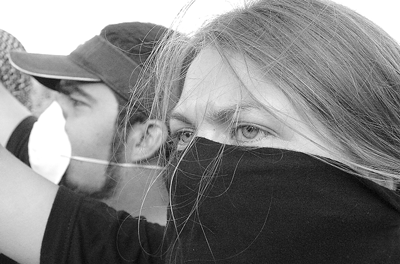In January, the U.S. Court of Appeals reversed an order by the U.S. Court for the Southern District of New York finding a New York State law barring wearing of masks at public gatherings unconstitutional. The Court of Appeals rejected the idea that masked gatherings are protected by the First Amendment and said that First Amendment rights must be “balanced against the state’s interests in safety.” On Dec. 7, the Supreme Court rejected the Ku Klux Klan’s appeal of the Court of Appeals’ ruling.
The statute was challenged by the Ku Klux Klan, which held a rally in New York City on Oct. 23, 1999. The statute is derived from legislation originally enacted in 1845 in response to disputes between landowners and tenants in the Hudson Valley. According to the court, the original legislation was “indisputably aimed at deterring violence and facilitating the apprehension of wrongdoers.”
Ronald Sternberg, senior assistant corporation counsel of the New York City Law Department’s Appeals Division, led the city’s legal team.
“Particularly given current times,” Sternberg said, “we are grateful that the court recognized the serious law enforcement implications of public gatherings of masked individuals The statute provides a significant law enforcement tool that properly withstood constitutional challenge.”
Civil rights attorney Norman Siegel represented the K.K.K. in the case, which he was hoping to be able to argue in the Supreme Court.
“I’m disappointed,” Siegel said. “I think the case presented serious and substantial First Amendment issues. Our position…is the mask allows someone to conceal their appearance at a public demonstration and that for groups [whose views] are unpopular or repugnant — like this one — the concealment is needed to prevent retaliation. I always thought this case was about the right of anonymous speech.”





































